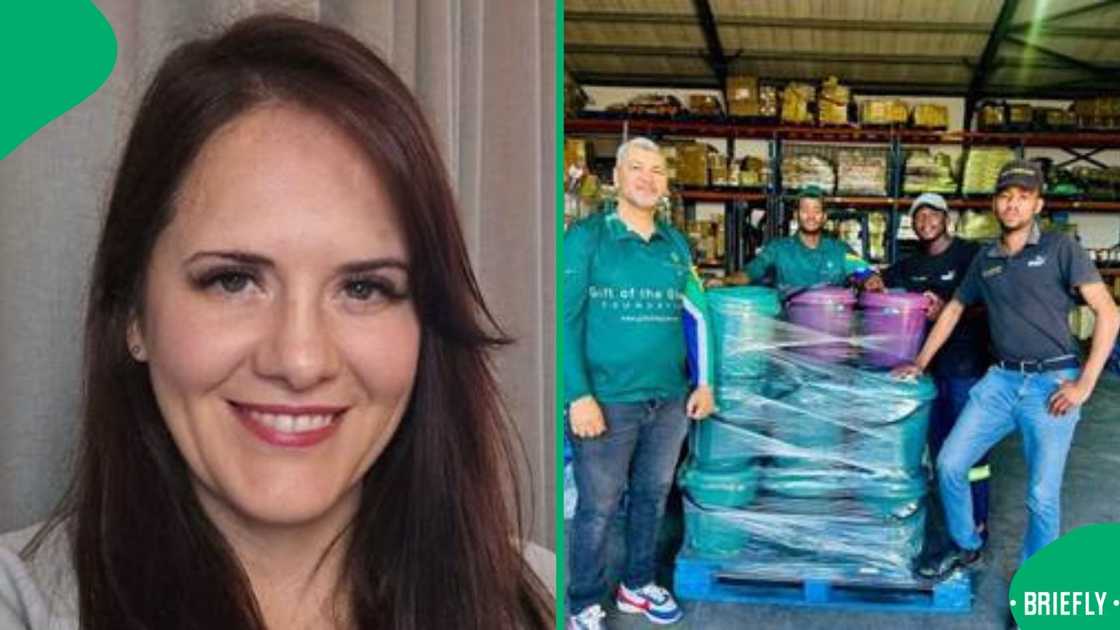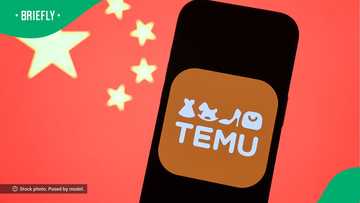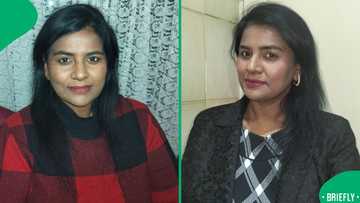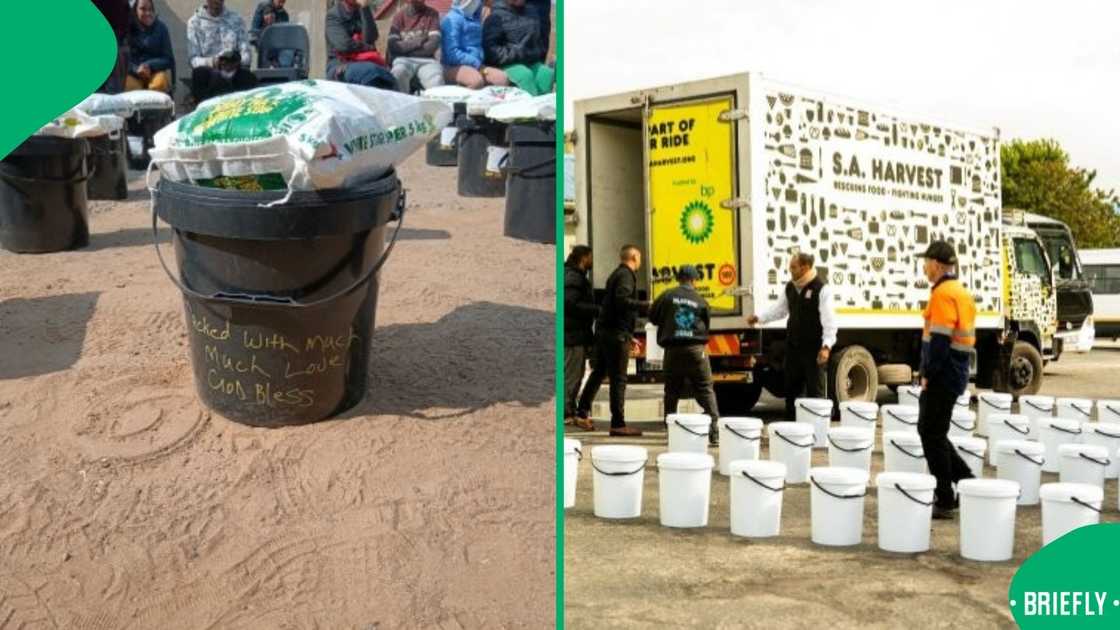Hunger to Hope: Why Nutrition is the Missing Link in Education Equity
Cassandra Potgieter leads Strategy, Marketing, and Communications at SA Harvest, where her focus is on building partnerships that drive long-term solutions to hunger in South Africa. With a background in behavioural science and organisational psychology, she works across sectors to connect data, logistics, and storytelling in service of social change. Cassandra brings over 20 years of experience to her work, drawing on both corporate and non-profit worlds. She believes in the quiet power of collective action and is deeply committed to amplifying the voices of those at the frontlines of food insecurity and systemic inequality.
Every July, South Africans come together to honour Nelson Mandela’s legacy by dedicating 67 minutes to acts of service. But symbolic gestures aren’t enough to repair systemic fractures. As we mark Mandela Day this year, it’s time to ask a deeper question: What if those 67 minutes could build infrastructure for justice, not just sentiment?

Source: Original
2025 Mandela Day campaign
As a food rescue organisation, SA Harvest, we believe we can. This year, we’re answering that question through action. Our 2025 Mandela Day campaign, Buckets of Nutrition for Matriculants, goes beyond symbolic giving. It’s designed as a tangible intervention in the ecosystem of inequality, not only by meeting learners’ immediate needs, but by mobilising corporate logistics, public participation, and food rescue infrastructure in service of systemic change. Those 67 minutes? They’re not just spending packing a bucket. They are helping to build a logistics chain, activate community networks, and distribute dignity at scale.
The campaign takes aim at one of the most overlooked but critical drivers of inequality in education: hunger.
PAY ATTENTION: Briefly News is now on YouTube! Check out our interviews on Briefly TV Life now!
Across South Africa, more than 800,000 Grade 12 learners will sit for their matric exams this year. Yet behind the exam papers lie stark realities — learners studying on empty stomachs, walking long distances to school, sharing homes where food is scarce, if not absent. In many communities that SA Harvest serve, preparing for matric is less about study tips and more about survival strategies. It’s a crisis that’s easy to overlook until you sit with the numbers.

Read also
After announcing a local warehouse, Temu sparked huge buzz among SA shoppers eager for faster delivery times
According to the 2024 Food (In)Security Report by the Socio-Economic Rights Institute (SERI), nearly two-thirds (63%) of South African households experience food insecurity, with 17,5% in severe hunger. These are households that regularly skip meals, go to bed hungry or survive entire days without food. Among children, the situation is even more alarming. One in seven has gone hungry in the past week. Stunting affects 30% of boys and 25% of girls under five, locking them into cycles of compromised cognitive development, setting the stage for underperformance long before learners reach the classroom.
Economic emergency
Food insecurity is not just a social injustice. It’s a neurological, developmental and economic emergency. Ultimately, an educational barrier. Nutrition directly influences brain development, concentration, memory, and mental health. In households where learners skip meals to stretch the family budget, school becomes less a space for opportunity and more a test of survival.
And while many rightly point out that South Africa produces enough food to feed its population, we discard nearly 10 million tonnes of edible food annually, a third of what we produce as a country. That waste costs the country more than R61.5 billion a year, according to the same report. In essence, our hunger crisis isn’t one of scarcity. Our crisis is made of broken systems, wasted abundance, and missed opportunities.
SA Harvest does the work to intercept that failure. Our model of food rescue reclaims edible surplus and redistributes it through a national network of vetted community-based organisations. But we do more than redistribute. We track every kilogram, every kilometre, every route and every recipient, because real change requires rigour, not just goodwill.

Read also
A TikTok video went viral after a woman thanked him for the freedom to marry across racial lines
The Buckets of Nutrition campaign
The Buckets of Nutrition campaign is an extension of this ethos. Each bucket (filled with nutritious shelf-stable food, basic hygiene products, and essential exam stationery) is designed with dignity in mind. These are not handouts. They’re interventions. They’re bridges to exam success, to restored self-worth, and the possibility of a different future.
But we cannot do this alone. It will take hands, hearts, and hard infrastructure. That’s why we’ve partnered with the Road Freight Association, whose members are donating warehouse space, trucks, and time to move these buckets across South Africa. On the ground, partners like Amdec at Melrose Arch in Johannesburg and Pavilion Mall in Durban are offering their spaces not just as venues, but as platforms for visibility, generosity, and shared purpose. These public activations allow individuals, corporations, and communities to show up (and to be seen showing up) for something bigger than themselves. It’s a living example of how industries can stand in solidarity with youth, not just symbolically, but structurally.

Read also
Free State woman wants to share her land to help develop community in historic town, Fouriesburg

Source: Original
2,879 Buckets across three cities
Last year, over 350 volunteers helped us pack 2,879 buckets across three cities. This year, we aim to go further, because the need has only grown. And because we’ve seen firsthand what happens when you place power, not pity, at the heart of giving.
There’s a moment from one of our beneficiary families that I carry with me. A mother had nothing but pap to offer her son on his birthday.
“I don’t mind,” he said. “As long as we can eat something.”
That child understood something we often forget: hunger strips away more than nutrition. It takes joy, imagination, and focus with it. We’re asking South Africans to act, not out of pity, but out of principle. To sponsor a bucket, to join a packing event, or simply to share the story. Because behind every bucket is a future we can still change.
"There can be no keener revelation of a society’s soul than how it treats its children,” Mandela once said
This Mandela Day, may our souls be revealed not in slogans, but in action – because justice starts with a full stomach.
3 More stories about food security in SA
- The South African Food Security Index 2024 has painted a concerning picture of rising hunger levels.
- The African Transformation Movement (ATM) has called on the government to address the need for stricter food security.
- The report, titled Food for Thought: Reflections on Food Insecurity, revealed that the country does not have enough food.
Disclaimer: The views and opinions expressed here are those of the author and do not necessarily reflect the official policy or position of Briefly News.
PAY ATTENTION: Follow Briefly News on Twitter and never miss the hottest topics! Find us at @brieflyza!
Source: Briefly News



